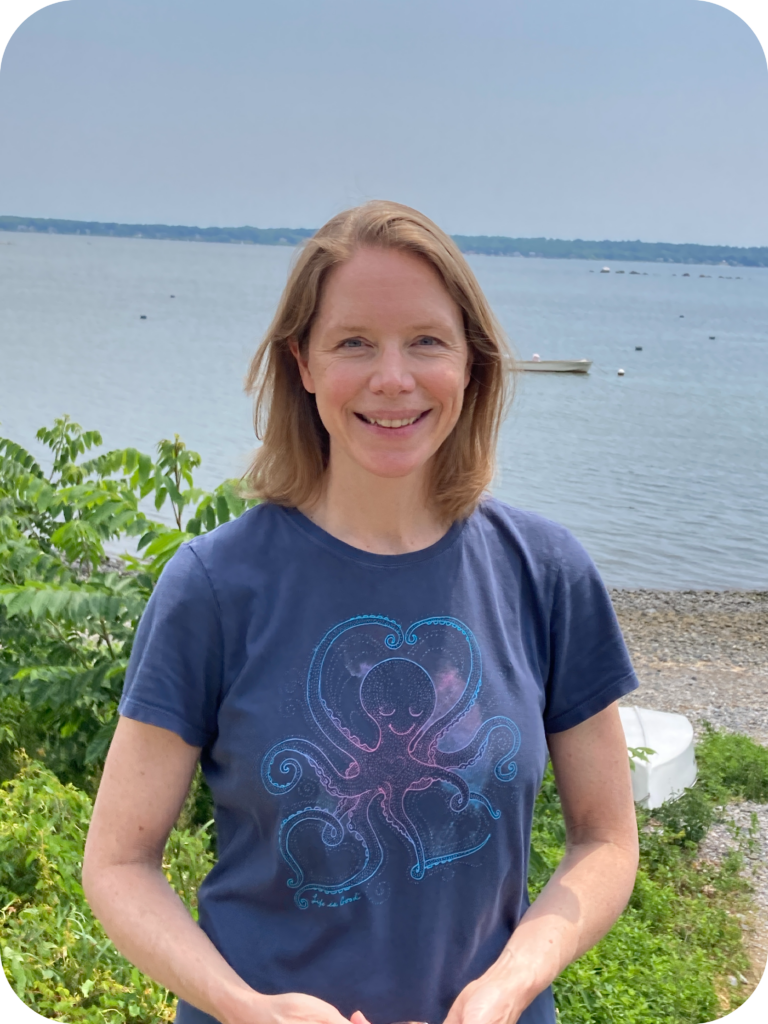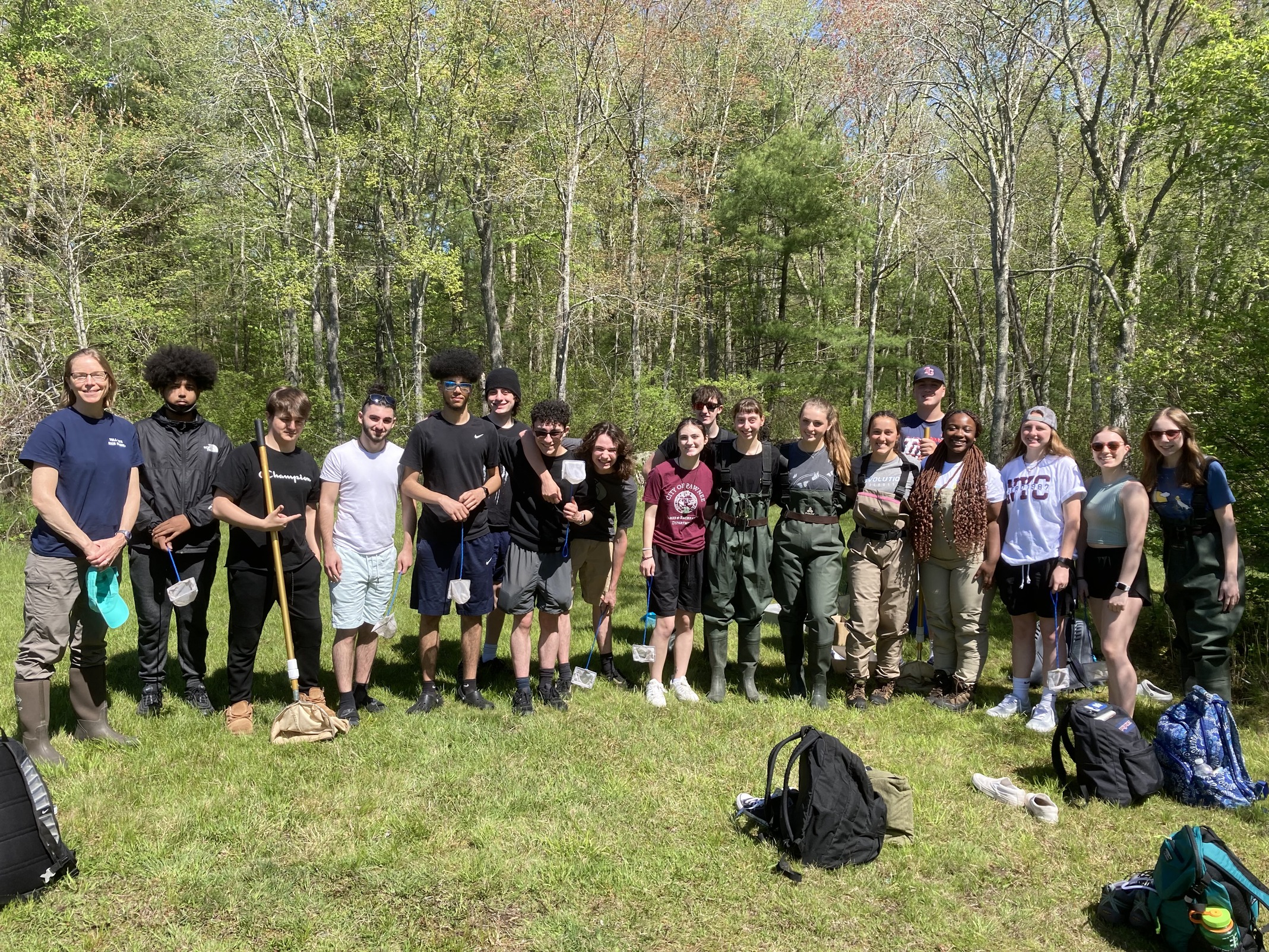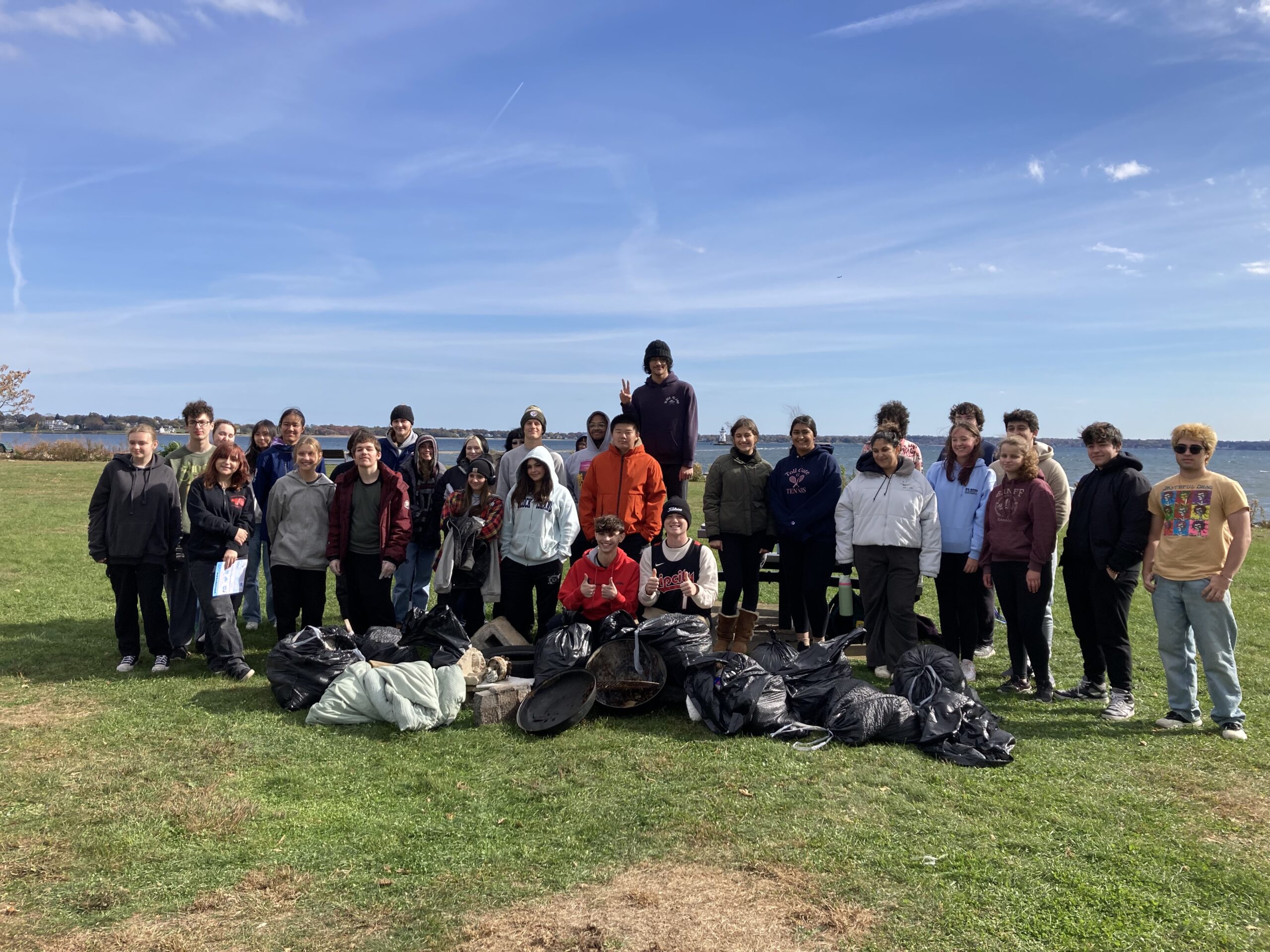Nurturing Ocean Stewards: Inside Mrs. Kutcher’s Marine Science Classroom
Wayfinder Society is for environmental educators who believe in the power of collective action. It is an online platform hosting a robust offering of classroom and teaching resources that makes it easy for educators to create a fun, dynamic, and engaging classroom and to inspire their students through environmental awareness and action. Every other month, we highlight an educator in our network.
 Nurturing Ocean Stewards: Inside Mrs. Kutcher’s Marine Science Classroom
Nurturing Ocean Stewards: Inside Mrs. Kutcher’s Marine Science Classroom
Jess Kutcher’s marine science classroom at Toll Gate High School in Warwick, Rhode Island, is a dynamic hub of exploration and learning – a perfect example of environmental education at its finest. Drawing from her extensive lived experience in marine-related education, research, and professional experiences, Jess infuses her teaching with real-world insights that inspire students and foster a deep passion for the marine environment.
Mrs. Kutcher double-majored in biology and environmental studies at Bowdoin College. She then completed her MS degree in Environmental Science from the University of Rhode Island. Afterward, she worked as an environmental contractor for the Navy, gaining extensive knowledge of environmental law. Mrs. Kutcher is thrilled to have found her way to teaching and feels fortunate to be part of a community where she can share her passion for the natural world every day.
Mrs. Kutcher’s classroom weaves together those unique experiences to provide students with a holistic, big picture view of environmental science as it relates to marine ecosystems. Throughout the year, her students delve into major ocean phyla while addressing critical issues such as pollution, coral bleaching, ocean acidification, overfishing, salt marsh loss, trophic cascades, habitat destruction, marine plastic pollution, and ocean noise.
Restoring Atlantic Salmon Populations
One standout project involves raising endangered Atlantic salmon from eggs each winter. Mrs. Kutcher’s class partners with the Rhode Island Division of Fish and Wildlife for this project. Once the salmon reach the fry stage, students release them into a river. Before the release, they assess the river’s health by identifying invertebrates, which indicate water quality. Atlantic salmon are endangered due to dams, pollution, and overfishing and haven’t returned to Rhode Island rivers for hundreds of years. This project aims to restore their population and to give students the opportunity to actively contribute to the health of their local ecosystems, while giving them hands-on experience out in nature.
Observing The Impacts of Plastic Pollution with Albatross Boluses
This year, Mrs. Kutcher’s students participated in the International Coastal Cleanup Day, coordinated by The Ocean Conservancy and Save The Bay. This year alone, students picked up over 1,000 pieces of plastic from their local beach (nearly 350 pounds of trash!).
In preparation for this day of action, Mrs. Kutcher’s students study plastic pollution and create related projects to help address the problem. As part of this program, students dissect albatross boluses to understand one way the Great Pacific Garbage Patch impacts marine organisms. Albatross boluses are the indigestible materials that are thrown up when the albatross chicks fledge before going out to sea. These boluses contain organic matter like squid beaks and fish eggs, as well as inorganic matter like plastics and other pollutants. These boluses act as good indicators on the health of our oceans and current marine debris situation. The boluses were given to Mrs. Kutcher’s class by Oikonos who collected them from Kure Atoll.
In addition to the Oikonos lesson plans, Mrs. Kutcher utilizes Algalita’s free resources for educators via Wayfinder Society for Environmental Education. To help students understand the environmental and public health impacts of plastic throughout its entire lifecycle, Mrs. Kutcher leverages The Story of Plastic toolkit. She also uses the Campus Cleanup lesson plan that has students collect and sort trash found at their school to help develop a solution for decreasing trash on campus.
Health of Coral Reefs
During wintertime, Mrs. Kutcher teaches a unit on coral reefs – a topic she prefers to cover in December and January when the weather is typically cold. However, with increasingly warm winters, the mental break from snow is becoming less necessary.
In this unit, students explore why coral bleaching occurs and how rising sea temperatures contribute to this phenomenon. They study the destruction of reefs and the loss of vital ecosystem services that corals provide. NOAA’s Data in the Classroom has been a valuable resource for this unit.
Additionally, students learn how increasing carbon dioxide levels from fossil fuel emissions lead to ocean acidification, making it difficult for corals to maintain strong skeletons. New this year, Mrs. Kutcher plans to introduce an investigation into coral diseases using photographs. Students will examine how human factors like agricultural runoff, sewage, and pollution spread diseases. They will also explore how climate change introduces pathogens to new areas and how warming oceans weaken corals, making them more vulnerable to disease.
Marine Conservation Laws in Action
Mrs. Kutcher finds it challenging to fit everything into the marine science curriculum because there is so much to cover! Toward the end of the year, students study sea turtles and marine mammals. Since all sea turtles in the U.S. and many marine mammals are protected under the Endangered Species Act (ESA), this unit reinforces their earlier lessons on the ESA when they studied Atlantic salmon. Students also learn about the Marine Mammal Protection Act and the threats these animals face, such as habitat loss, ocean noise, and ship strikes, highlighting the importance of these protective laws. Each student researches a specific species, its conservation status (endangered, threatened, or a species of concern), and critical habitat.
Throughout her entire journey as an educator, Jess emphasizes environmental stewardship, encouraging students to make conscious choices and advocate for sustainability. Her holistic approach not only equips students with critical knowledge but also empowers them to become passionate advocates for the marine environment’s future.


Students picked up 1,145 plastic items (350 lbs of trash) at their local beach!
